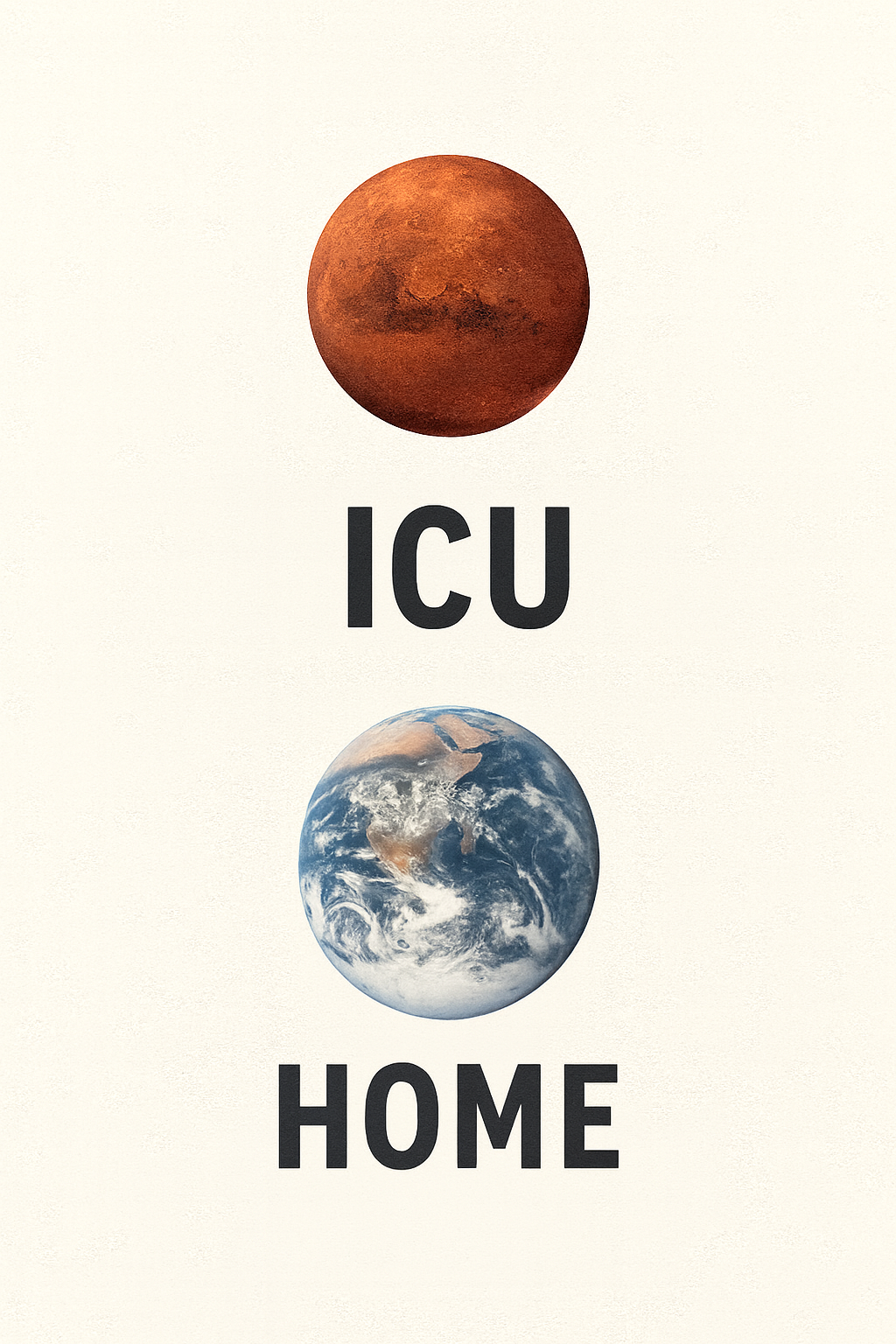
Mars Is Not a Second Home
Share
Earth Is Our Only Home
For decades, “colonizing Mars” has been a powerful human fantasy. Tech companies speak of Martian bases; science fiction paints Mars as humanity’s “Plan B.” But this dream ignores a fundamental reality: Mars can never be humanity’s second home.
The Harsh Reality of Mars
-
No protective atmosphere: Its thin air cannot shield us from cosmic radiation and solar winds.
-
Scarcity of liquid water: With extreme cold, liquid water is nearly absent, making ecosystems impossible.
-
Insufficient gravity: At only one-third of Earth’s gravity, long-term health problems would be inevitable.
-
No biosphere: No natural food chains, no life-supporting environment.
In other words, Mars might host short-term habitats, but it will never offer conditions that are stable, comfortable, and enduring.
The ICU Metaphor: Mars as Humanity’s Intensive Care Unit
If Mars must be compared to something, it is not a “second home,” but rather humanity’s ICU (Intensive Care Unit).
In a hospital, the ICU is not a place for long-term living—it is a temporary space for the critically ill:
-
It keeps vital signs from failing;
-
It buys time, but cannot serve as a permanent home.
Mars has the same meaning. It may serve as a laboratory or as a temporary shelter in emergencies, but it cannot host the ongoing life of human civilization.
The Real Responsibility: Protecting Earth
The fantasy of “escaping to Mars” is a form of collective denial. The real challenge is here, beneath our feet:
-
Facing climate crisis;
-
Restoring ecosystems;
-
Finding sustainable ways to manage energy, housing, and society.
Instead of dreaming of Mars, we must work to save Earth.
🌍 Mars is not a second home—at most it is humanity’s ICU; Earth is our only home.
